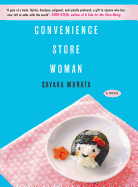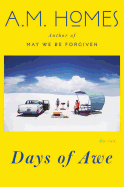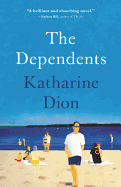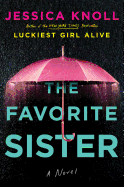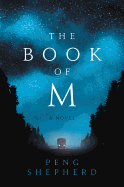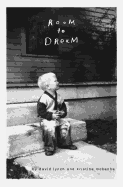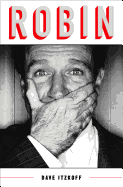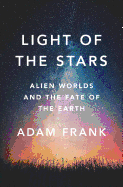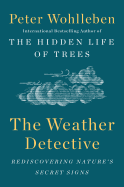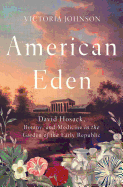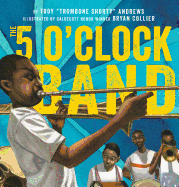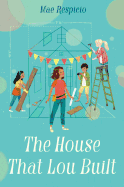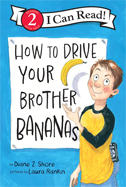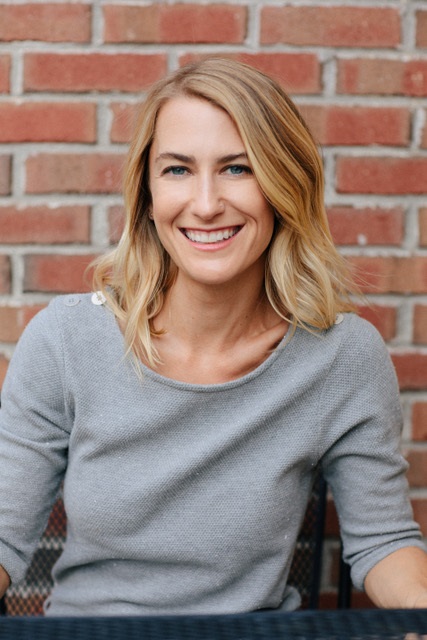 |
| photo: Sylvie Rosokoff |
Joanna Cantor holds an MFA from Brooklyn College and a BA from Colorado College. She was the 2014 recipient of a Vermont Studio Center Fellowship. Alternative Remedies for Loss
(Bloomsbury, May 8, 2018) is her debut novel. She lives in Brooklyn, N.Y., with her husband and dog.
On your nightstand now:
I just finished Tayari Jones's An American Marriage, so that's moved over to my husband's side of the bed. It's rare that a book can have me so engaged at a plot-and-character level (I actually peeked ahead a few times because I couldn't wait to find out what happened!) while also causing me to reflect deeply on larger issues. I can't recommend this one highly enough--it's really outstanding.
I'm reading and savoring Sigrid Nunez's The Friend. This novel is barely 200 pages yet it manages to be so many things--a story of loss, an ode to a friendship, a sharp and sometimes hilarious commentary on the literary world and a beautiful, moving portrait of friendship between a woman and a dog.
Joan Didion's South and West lives next to the bed--I've read some but I'm not feeling any rush and I like having her nearby. Ditto with Stag's Leap by Sharon Olds and The Bright Hour by Nina Riggs. I definitely keep too many things on the nightstand!
Next up are Jesmyn Ward's Sing, Unburied, Sing and Lisa Halliday's Asymmetry.
Favorite book when you were a child:
Charlotte's Web--I think I made my mom read it to me more than 10 times! I've been an animal nut from day one. I also loved the Laura Ingalls Wilder books. I was fascinated with how things worked in "olden times," as I called anything not contemporary as a child.
Your top five authors:
Jennifer Egan, James Salter, Edith Wharton, Joan Didion, Jane Austen.
Book you've faked reading:
This is a strange one, because I can't really say why I haven't read it, but at a party not long ago someone referenced Jonathan Franzen's The Corrections. They knew I was a writer and I couldn't bring myself to admit the truth, so I just agreed with whatever they were saying.
Also, Harry Potter. This is going to be devastating to a few friends of mine, but I'll come clean: nope, I've never read anything by J.K. Rowling. And--gulp--I haven't even seen the movies. Yes, I just nod and smile at your Harry Potter references.
Book you're an evangelist for:
I'm an evangelist for a lot of books, depending on when and to whom I'm evangelizing--but one would be Tiny Beautiful Things by Cheryl Strayed. It's a collection of advice columns she wrote as "Dear Sugar" for The Rumpus. There's a tremendous amount of heart in this book, and the contents are inherently varied, so whatever the source of your secret heartache, you'll find something wise and cathartic in there.
Book you've bought for the cover:
The cover of Goodbye, Vitamin by Rachel Khong was just so good--lively, vibrant colors, whimsical, offbeat, memorable. I would have read it anyway, but I'd say maybe I bought it sooner because of the cover.
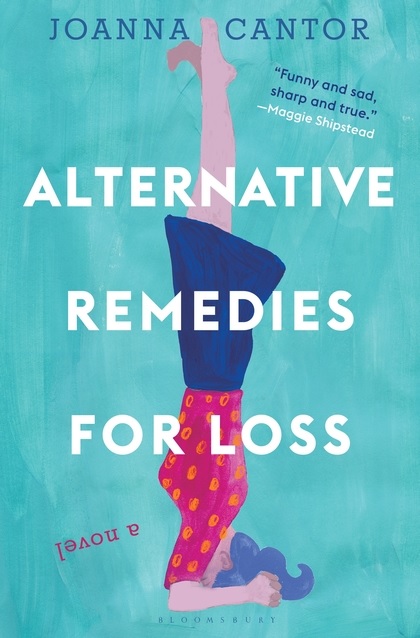 Book you hid from your parents:
Book you hid from your parents:
The Baby-Sitters Club series. My mom thought they were junk, but I was addicted. I think it's because they combined the familiarity of a series (comforting to tweens) with a big dose of plot. A lot happened in those books.
Also, I would sneak peaks at any parenting book I found on my mom's shelf. I wanted to get inside the mind of the opposition!
Book that changed your life:
I read Rosie by Anne Lamott when I was 14, on a family vacation. I fell in love with Lamott's warm prose and with the limitless compassion she bestowed on her characters even as they screwed up. It was the first time I remember thinking This is what I want to do--to create a world, and to make readers feel invited into that world, the way Lamott did. Twenty years later, my copy is totally battered; I've flipped through it so many times when I felt in need of courage or inspiration.
Favorite line from a book:
"I would stay in New York, I told him, just six months, and I could see the Brooklyn Bridge from my window. As it turned out the bridge was the Triborough, and I stayed eight years."
This is from Joan Didion's essay "Goodbye to All That" in Slouching Towards Bethlehem--certainly my favorite essay and possibly my favorite piece of writing, full stop. I can't read that line without getting chills. It cuts to the quick of everything we don't know about ourselves when we're young, how it feels to be new to New York and the passage of time. I love the juxtaposition: the relatively small matter of calling a bridge by the wrong name, and the much larger matters of six months becoming eight years (and of the engagement Didion called off in the process, which we learn about in the surrounding lines).
Five books you'll never part with:
I would have said The Wellspring by Sharon Olds, but I gave it to a friend who was pregnant and moving abroad. It felt important that she have my beloved copy. I keep meaning to buy another one.
Emperor's Children by Claire Messud. This came out the year I moved to New York and was one of my bibles when I began writing fiction. When my husband moved in, we somehow had three copies between the two of us, and he was like, clearly we'll get rid of two of these, but I made us hang onto all three! You can't be too careful.
Sweetbitter by Stephanie Danler--actually set the year I moved to NYC, and another New York story that felt like it was written for me. I found Danler's prose inviting and inspiring; I kept my copy by my side as I was revising my novel and still love to flip through when I'm at loose ends.
My signed, personalized copy of Jennifer Egan's A Visit from the Goon Squad--she thanks me for introducing her at a reading. Goon Squad is such a brilliant book--definitely never parting with that one.
So I don't exclude men entirely, I'll end with 100 Love Sonnets by Pablo Neruda. Family friends gave this to my husband and me when we got engaged, and we ended up including one of the sonnets in our wedding ceremony. You can't beat poetry that finds a way to say something fresh about love.
Book you most want to read again for the first time:
Elena Ferrante's Neopolitan novels--all four of them! The level of addiction I felt while reading those books (oops I forgot to brush my teeth/check my phone/eat, how is it getting dark out?) is something I associate with reading as a kid--it's harder to find as an adult. It's an almost queasy pleasure, like binging on sweets.
Five books that are resources for your own writing:
I've touched on this a bit already--Rosie by Anne Lamott was the earliest one. Stephanie Danler's Sweetbitter and several of Jennifer Egan's novels have been others. But two more that I've found myself rereading when I feel stuck in my own writing are The Love Affairs of Nathaniel P. by Adelle Waldman and The Privileges by Jonathan Dee. I think Waldman and Dee both really excel at pacing, at knowing when to dive into a moment and when to skim the surface or jump ahead. They move the stories forward with such great energy. I love to dip into these novels when my work is feeling sluggish, to try to hitch a ride on that momentum.
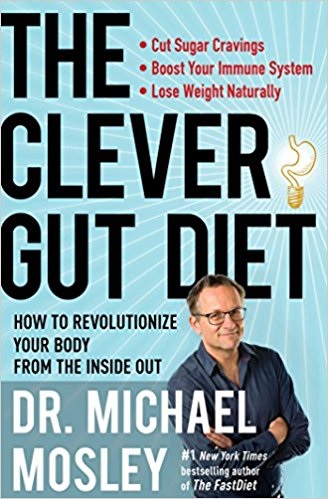 According to Dr. Michael Mosley, author of The Clever Gut Diet: How to Revolutionize Your Body from the Inside Out (Atria, $16), our gut is, in fact, a second brain. It contains as many neurons as we would find in the head of a cat. Dr. Mosley explores the effect of gut health on mental health, the immune system and the causal link between gut bacteria and conditions such as irritable bowel syndrome and gluten intolerance.
According to Dr. Michael Mosley, author of The Clever Gut Diet: How to Revolutionize Your Body from the Inside Out (Atria, $16), our gut is, in fact, a second brain. It contains as many neurons as we would find in the head of a cat. Dr. Mosley explores the effect of gut health on mental health, the immune system and the causal link between gut bacteria and conditions such as irritable bowel syndrome and gluten intolerance.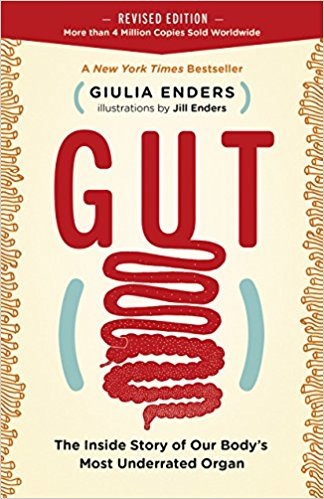 In Gut--The Inside Story of Our Body's Most Underrated Organ (Greystone, $17.95), Giulia Enders explains how the gut works and what keeps it working. With entertaining illustrations (by her sister) and tongue-in-cheek humor, Enders shares her fascination with the central role of an organ that, until recently, was underestimated.
In Gut--The Inside Story of Our Body's Most Underrated Organ (Greystone, $17.95), Giulia Enders explains how the gut works and what keeps it working. With entertaining illustrations (by her sister) and tongue-in-cheek humor, Enders shares her fascination with the central role of an organ that, until recently, was underestimated.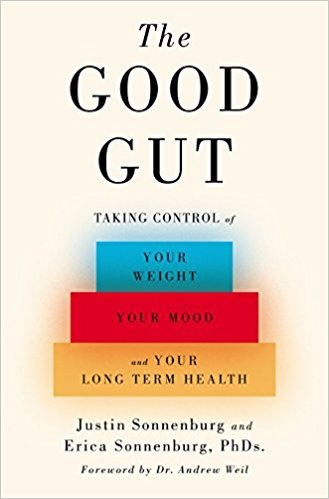 The Good Gut: Taking Control of Your Weight, Your Mood and Your Long Term Health (Penguin, $17) focuses on the gut's microbial inhabitants and their importance in keeping us active and healthy. Extreme cleanliness in the Western world has compromised our gut flora. With a concentration on children and developing their gut health, Justin and Erica Sonnenburg suggest ways to boost our guts' microbial community and show how to tell the difference between good and bad bacteria.
The Good Gut: Taking Control of Your Weight, Your Mood and Your Long Term Health (Penguin, $17) focuses on the gut's microbial inhabitants and their importance in keeping us active and healthy. Extreme cleanliness in the Western world has compromised our gut flora. With a concentration on children and developing their gut health, Justin and Erica Sonnenburg suggest ways to boost our guts' microbial community and show how to tell the difference between good and bad bacteria.


 Book you hid from your parents:
Book you hid from your parents: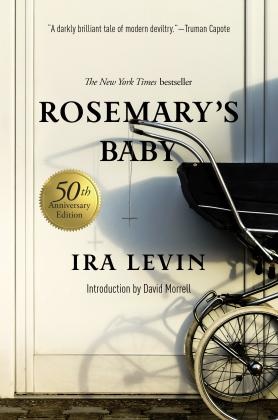 When Rosemary and Guy Woodhouse move into their dream apartment at the Bramford, a Gothic Revival building in Manhattan, they meet a group of elderly, eccentric but amicable neighbors--hardly the dour sort who might inhabit a building of dubious reputation. Guy, a struggling actor, makes fast friends with the neighbors, and soon lands a professional break thanks to a rival's misfortune. Rosemary is thrilled when she gets pregnant, but as the doting neighbors turn from nosy to overbearing, and Rosemary's pregnancy takes uncomfortable turns, she discovers the Bram's odd residents are far more ominous than they seem.
When Rosemary and Guy Woodhouse move into their dream apartment at the Bramford, a Gothic Revival building in Manhattan, they meet a group of elderly, eccentric but amicable neighbors--hardly the dour sort who might inhabit a building of dubious reputation. Guy, a struggling actor, makes fast friends with the neighbors, and soon lands a professional break thanks to a rival's misfortune. Rosemary is thrilled when she gets pregnant, but as the doting neighbors turn from nosy to overbearing, and Rosemary's pregnancy takes uncomfortable turns, she discovers the Bram's odd residents are far more ominous than they seem.